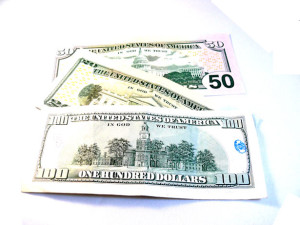 AKRON, Ohio — A prominent professing atheist has filed another lawsuit in his effort to have the motto “In God We Trust” removed from U.S. currency.
AKRON, Ohio — A prominent professing atheist has filed another lawsuit in his effort to have the motto “In God We Trust” removed from U.S. currency.
As previously reported, atheist Michael Newdow, who has filed numerous suits challenging the mixture of God and government, first submitted a complaint in the Southern District of New York in March 2013, asserting that the motto violates the Establishment Clause of the United States Constitution as it serves to proselytize unbelievers.
But in September of that year, U.S. District Court Judge Harold Baer, Jr., nominated by Bill Clinton, rejected Newdow’s arguments, opining that “the inclusion of the motto on U.S. currency . . . does not violate the Establishment Clause [of the Constitution].”
He consequently appealed his case to the Second Circuit Court of Appeals in Manhattan, but in May 2014, the court likewise ruled against the prominent atheist.
“The Supreme Court has recognized in a number of its cases that the motto, and its inclusion in the design of U.S. currency, is a ‘reference to our religious heritage,’” it wrote. “We therefore hold, in line with the Supreme Court’s dicta, that [the motto appearing on currency does] not violate the Establishment Clause.”
Newdow soon began seeking plaintiffs to challenge the motto from a different angle—the federal Religious Freedom Restoration Act (RFRA) signed in the 1990s by then-President Bill Clinton.
His new federal suit, filed in Ohio this week, has 43 plaintiffs, with nine of them being children.
“When [the child] is confronted with ‘In G-d We Trust’ on every coin and currency bill she handles or learns about in school, the power and prestige of the federal government is brought to bear upon her with the message that her father’s (and her own) Atheism is false,” the complaint reads in part.
“Additionally, she is taught to carry and promote a religious message her father is teaching her to at least consider denying, and to also make a completely false declaration as to what is likely to be her own religious view on the matter of G-d’s existence,” it says.
Newdow’s lawsuit asks the court to place a permanent injunction on the U.S. government from printing or minting the motto on further currency out of a declaration that the saying violates the First and Fifth Amendments, as well as the RFRA.
The motto “In God We Trust” has appeared on U.S. coins since 1864 and began being printed on paper currency in 1957. The phrase is to believed to have originated with the Star Spangled Banner, written during the War of 1812, which declares, “And this be our motto: In God We Trust!”
Following a Civil War-era proposal from a number of pastors to the U.S. Treasury Department that God be acknowledged on American currency, Treasury Secretary Salmon P. Chase obliged and ordered that a design be created. Its inscription was first upheld by Congress in 1864, and then again in 1873 when Congress passed the Coinage Act, which specifically declared that the secretary “may cause the motto ‘In God We Trust’ to be inscribed on such coins as shall admit of such motto.”
In 1956, Congress passed a resolution making “In God We Trust” the national motto, which was again upheld by the U.S. House of Representatives in 2011 by a 396-9 vote.
Become a Christian News Network Supporter...


